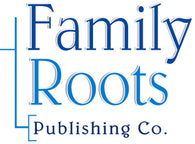
The Burlington Court Book: A Record Of Quaker Jurisprudence In West New Jersey, 1680-1709
The Burlington Court Book: A Record of Quaker Jurisprudence in West New Jersey, 1680-1709; by H. Clay Reed and George J. Miller, eds.; 427 pp; Hardcover; Published: 1944, Reprinted: 1998; ISBN: 9780806315584; Item #CF4840.
In 1676, shortly after the English seized the territory from the Dutch, New Jersey was divided into the colonies of East and West Jersey. Under the Duke of York--the original proprietor--East Jersey was settled by small landowners and entrepreneurs, while West Jersey was settled by Quakers, and was in fact the first Quaker colony in America, preceding Pennsylvania by six years. Organized by a group of Quaker proprietors in London in 1676/7, West Jersey was governed initially by nine commissioners who held court at Burlington. Besides its legislative authority over the colony, the court at Burlington had jurisdiction over local matters and served as the court of appeals for Salem and other towns in West Jersey after 1683.
Quaker justices continued to hold court in Burlington until May 1703, losing their right to self-government following the end of proprietary rule and the creation of the united Province of New Jersey under royal charter the previous year. While non-Quakers would eventually overshadow the Quaker inhabitants of West Jersey, Burlington remained a Quaker stronghold throughout the period of proprietary rule.
The minutes of the Burlington court, transcribed and published originally by the American Historical Association in 1944, and now available in this facsimile reprint, contain the day to day minutiae of Quaker temporal life, just as the meeting records illuminate Quaker spiritual life.
While they reflect all facets of life in West Jersey, most of the court minutes concern property rights, civil suits, grievances involving slaves, servants, and Indians, and all manner of domestic complaints. They constitute not only the most important judicial record of the colony of West Jersey but are a goldmine of clues about the early inhabitants of West Jersey. A mirror of the life and times of this almost forgotten colony, the minutes of the Burlington court offer rare possibilities for genealogical research, for many of the cases brought before the court, such as inquests, petty civil suits, and criminal cases, give the names of spouses, children, and other related individuals. Since most of the persons named in The Burlington Court Book were Quakers, researchers may be able to profit even further from the clues it contains by probing among New Jersey Quaker meeting records for the same period.
With an index containing over 15,000 references, this little-known work is sure to attract the attention of all researchers with an interest in early New Jersey.
"Burlington Court Book of West New Jersey" Book Review
